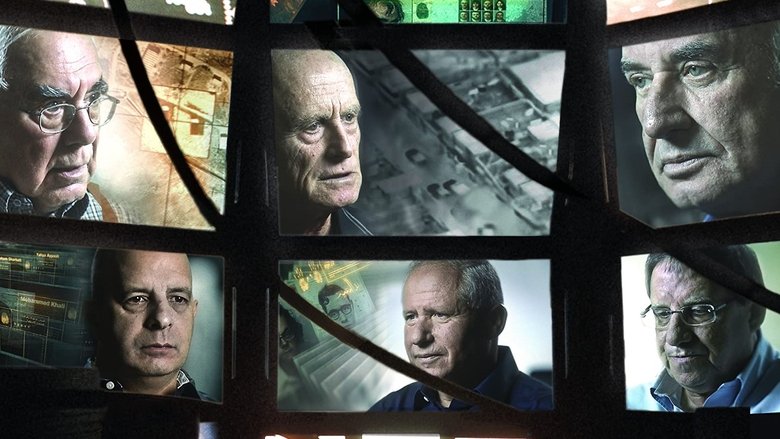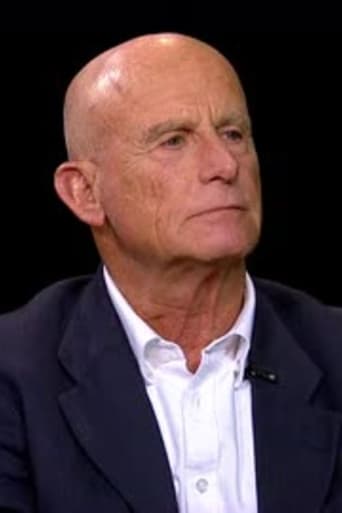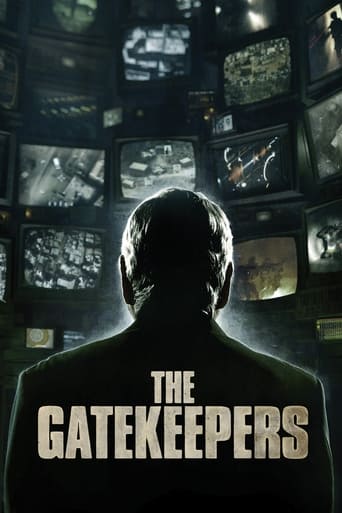
The Gatekeepers
February. 01,2013 PG-13In an unprecedented and candid series of interviews, six former heads of the Shin Bet — Israel's intelligence and security agency — speak about their role in Israel's decades-long counterterrorism campaign, discussing their controversial methods and whether the ends ultimately justify the means. (TIFF)
Similar titles
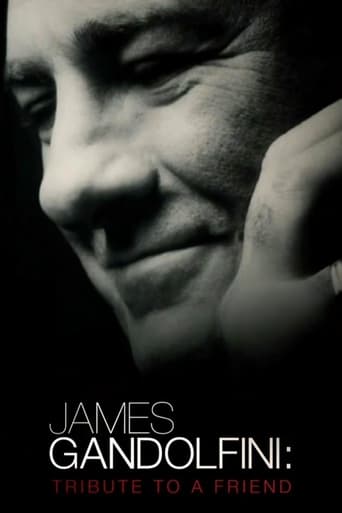
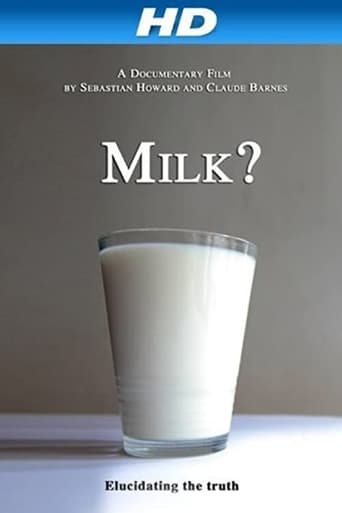
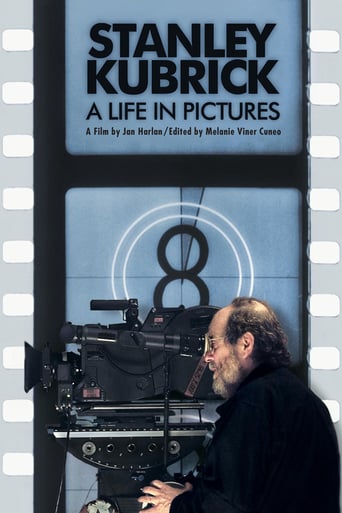

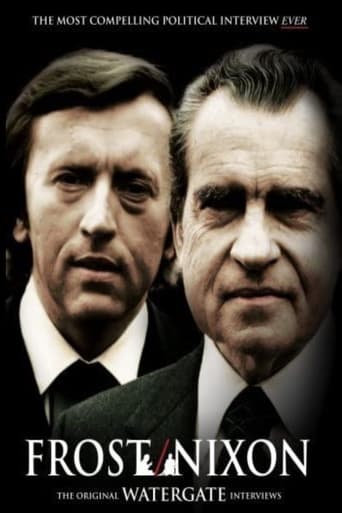
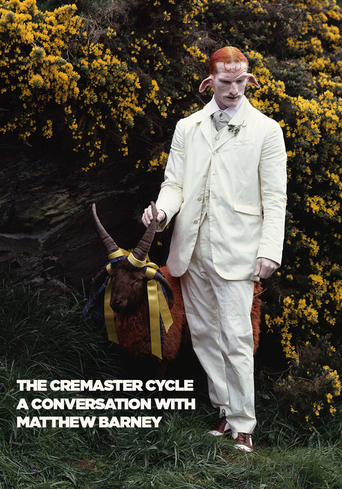
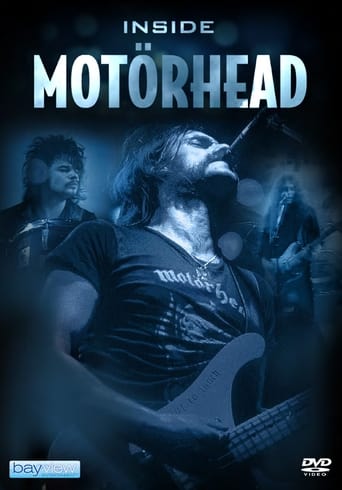
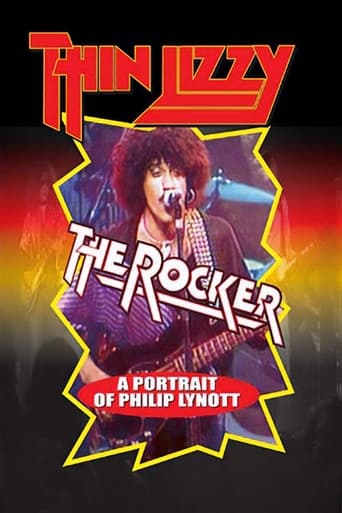
Reviews
I wanted to but couldn't!
The acting is good, and the firecracker script has some excellent ideas.
The film's masterful storytelling did its job. The message was clear. No need to overdo.
It is a whirlwind of delight --- attractive actors, stunning couture, spectacular sets and outrageous parties. It's a feast for the eyes. But what really makes this dramedy work is the acting.
This documentary consists of a series of interviews with former heads of Shin Bet, the Israeli Secret Service. They outline their work in protecting the country's interests, especially since the Six Day War of 1967, while reflecting on the morality of their actions. The film illustrates some of their maneuvers with the help of archive footage and reconstructions. What makes THE GATEKEEPERS so intriguing is its contradictory viewpoints; on the one hand many of those interviewed believe that it is their duty to protect Israeli interests at all costs, even if it means incurring collateral damage. If they targeted a particular Palestinian suspect, they accepted as a matter of course that innocent people would get killed, however much they tried to pinpoint their campaign. While accepting to an extent the Palestinian claims to their own separate state, the interviewees nonetheless have a jaundiced view of the methods their rivals employ: why should Palestinians believe they have achieved their revenge simply by making the Israelis suffer? Yet perhaps what is most interesting is the way in which the interviewees criticize their own government for perpetually pursuing militarist policies, and refusing to meet the Palestinians round the negotiating-table in a sustained way. The Oslo accords of the mid- Nineties represented a step in the right direction, but they collapsed within seven years. Since then, most Israeli Prime Ministers have been preoccupied with pursuing aggressive policies against the Palestinians. The interviewees understand that they, the Israelis, are the colonists, adopting modes of behavior which they themselves experienced in the past at the hands of the British. Perhaps greater care needs to be taken in the future about pursuing a more liberal policy; but the interviewees seem fairly pessimistic about this actually happening. THE GATEKEEPERS might not be a particularly dramatic film, but it is an invaluable text that helps to unravel the complexities underlying the Israel-Palestine conflict.
I was kind of surprised by the candid nature of The Gatekeepers. I was expecting it to be tainted with political correctness or even overt propaganda, given its sensitive subject matter. But instead, all the former heads of Shin Bet seemed genuine to me - admitting to as many embarrassing exploits as heroic ones.I am sure there will be people on the opposite side of the fence that will still see it as propaganda. And perhaps that is understandable given how much blood has been shed in that region of the world and just how contentious the issues are. But I for one found the perspectives honest, chilling and with a glimmer of hope that things can be better in the future.Highly recommended.
According to Wikipedia, "The Gatekeepers", director, Dror Moreh, wanted to understand how Israel's Shin Bet security agency worked. He contacted a former head of the Shin Bet (a "Gatekeeper,)" Ami Ayalon, who had since been elected to the Knesset for the Labor Party. Ayalon agreed to participate, and helped Moreh contact the other surviving former heads of the Shin BetMy Response to The Gatekeepers #1: Blame the politicians - not the spiesAvraham Shalom, one of the Gatekeepers after the 1967 war believed, like many, that the conquered territories would be returned to their former occupants. He says, "The problem is that the security agency executives are so busy conducting the activities of their organisations that they only get to think about these things when they are on holidays, or when they retire" (my paraphrase). The problems is that " There was no strategy, just tactics As soon as we stopped dealing with the Palestinian state and started dealing with terrorism, we forgot about the Palestinian issue"My Response to The Gatekeepers #2: Politicians pander to the prevailing popular opinion - in other words - what they think the people will vote for. Blame the people, not the politiciansI have a feeling that if Israelis took the words of their prophets more seriously they would have a nicer country to live in. Take the words of Jeremiah, for example "If you really change your ways and your actions and deal with each other justly, if you do not oppress the foreigner, the fatherless or the widow then I will let you live in this place, in the land I gave your ancestors for ever and ever. But look, you are trusting in deceptive words that are worthless." (chapter 7:5-8)"All six former heads of Shin Bet argue – to varying degrees – that the Israeli occupation of Palestinian land is bad for the state of Israel." Carmi Gillon, head of Shin Bet from 1994 to 1996, suggests that the deceptive words of the extremists led to a serious attempt to blow up the Muslim Dome of the Rock mosque, which stands on the site of the old Temple of Solomon. Shin Bet operatives were able to interrupt it.He suggests that such an act would have united Muslims around the world, from Arabia to Indonesia, to take up arms against Israelis, and lay siege to Zion. Such an occurrence is referred to in Israel's prophetic scriptures as "the Great Tribulation".It takes a bit of background to get an understanding of what that involves.The biblical prophets sought to explain the destruction of Israel by the Assyrian and Babylonian empires as part of an atoning process that would remake the people of Israel in a way that was acceptable to Jahweh. It is likened to the way in which precious metals are refined by having the ore (dross, impurities) burnt off. The process is described in Deuteronomy chapters 28 to 30. That theme is taken up by the prophet Jeremiah in chapters 29 to 31, in which the supposedly new covenant he discusses seems to be identical with the one Jahweh negotiated with MosesBoth the Moses and Jeremiah covenants involve people adopting a righteous mindset - or to use the rather more poetic language employed in the bible - having the words of the Law "written upon their hearts". It is the same righteous mindset that Jahweh ascribed to Abraham in Genesis 26:5, "because Abraham obeyed me and did everything I required of him, keeping my commands, my decrees and my instructions." What the expression, "the Law written upon their hearts" actually means was summarised by Hillel as "the ethic of reciprocity", or "Golden Rule": "That which is hateful to you, do not do to your fellow. That is the whole Torah; the rest is the explanation; go and learn." (this is another quote from Wikipedia - go and read) The Israeli prophets are obsessed with the idea that this atonement, this refinement ,will take place in three stages. 1 the Great Tribulation of Israel 2 the Day of the Lord 3 the prosperity of the Messianic reign in Zion of David's sonThe Day of the Lord occurs when God intervenes in human history, delivering Jerusalem from the armies of the nations that have besieged it (the great tribulation), then places a descendant of King David on the throne in Jerusalem.The Roman expulsions of Jews from Israel (70 and 138 CE) occurred after Jewish extremists decided to speed up that process by getting involved in revolutionary politics. The book and film of Chaim Potok's, "The Chosen" depict this idea when the fictional, orthodox Rebbe Saunders launches into a tirade against the efforts of post World War II Zionists to re-create a state of Israel. I would paraphrase it as, "Hitler killed Jewish bodies - these Zionists will kill the Jewish soul", but you would probably be better advised to read the book or see the film.It seems that the extremists want to do it all again, but this time against the Muslims rather than the Romans. Carmi Gillon notes that these sentiments culminated in the assassination of prime minister Rabin, and emasculated the efforts of Israeli officials at peace talks from Oslo to the present day. All the Gatekeepers agree such talks must be continued in a serious manner.Spielberg's film, "Munich" highlighted the problem of Israeli born Jews leaving Israel.Maybe its time they stayed home and discovered for themselves what it means to have Moses' Law written upon their hearts. Not what some medieval commentator says. Not what some critical text analysis says. But what it means "not to do what is hateful to your fellow.". Then maybe they should get themselves elected.
Those with a deep and abiding interest in the problems of the Middle East will find much food for thought in "The Gatekeepers," an Oscar- nominated documentary about the Israeli intelligence agency known as Shin Bet. And those who are but casual observers of that part of the world may learn a thing or two as well.The selling point of the movie is that for the first time ever it managed to get a number of the past leaders of Shin Bet to comment on their experiences with the organization. Directed by Dror Moreh, the movie begins with the Six Day War in 1967, goes through the various periods of turmoil and attempts at peacemaking that have gone on there through the decades since (including the assassination of Rabin), and ends in the present day when technological advancements have made surgical drone strikes the preferred weapon of choice in the seemingly never-ending battle against terror. As such, the movie provides a fascinating and surprisingly cohesive history of life in that geopolitical hotspot over the past half-century, all without any voice-over narration, using only the extemporaneous words and comments of the men who played such a major part in that history. In moments of intense self-reflection, the men offer surprisingly candid comments regarding what they've had to do in their role as protectors of the nation. They re not afraid to delve into the grayer areas of the issues, for instance expressing regret over the "collateral damage" of innocents often caught in the crossfire of war, admitting to the mistreatment of prisoners, and agonizing over the dehumanization that results from sectarian prejudice and fighting. A number of them ponder the distinct differences in motive and approach between the politicians setting the policies and the people assigned to carry them out. Above all, to a one, the men reserve their harshest criticism for themselves, Shin Bet and their own country, often expressing sympathy for the Palestinians for what they've had to endure under Israeli occupation and questioning much of what Shin Bet and they themselves have done over the years, the mistakes they've made. Most agree that the most important thing Israel can do is to keep talking to its enemies. As such, I can't imagine this film went over too well with the hardliners in that country. As one of the men says, the farther one gets from one's time as leader of Shin Bet, the more "leftist" one becomes.I don't know if that's true, but it makes for a fascinating theory. And there are many more unexpectedly eye-opening and paradigm-shifting moments to be found in "The Gatekeepers."
Top Streaming Movies











